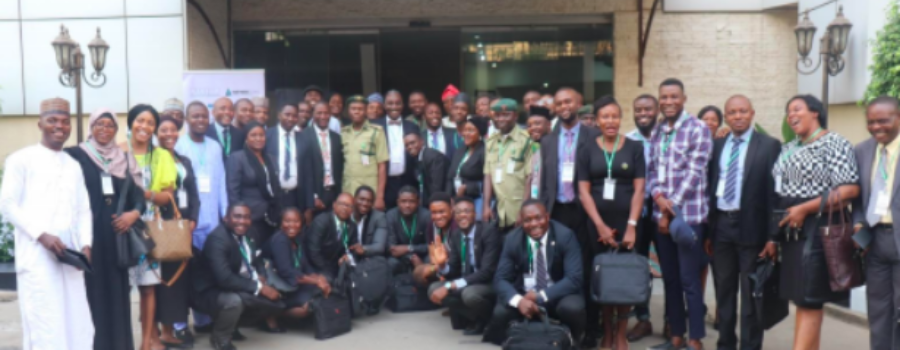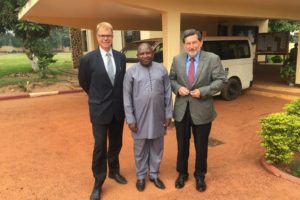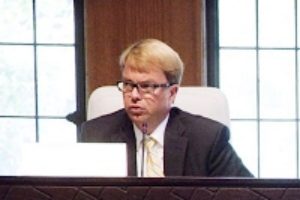There are over 52 mentor-mentee pairing connections fostered under this initiative. One instance where this mentorship connection sparked innovation was when one of PAC Member Stefan LoBuglio’s mentees, James, came to him to propose an idea that combined both of their expertise. Prior to pursuing his studies in law, James had received a doctorate in nutrition. As a fourth year law student, James continued to pursue his passion as an educator teaching food and nutrition in another university. As for Stefan, he himself has extensive experience running a correctional facility and understands the role of inmate well-being services in their rehabilitation and reintegration process — one of which is preparing food with love and hope.
The two quickly bonded over their passion for physical well-being as rehabilitation. As Stefan would say, “If you are committed to rehabilitation, we  need to start asking: how are family visitations? How is the food?” Gears turned in James’ head and not long after, he came up with a proposal to intentionally rethink food and nutrition standards in the Nigerian Correctional System. James presented the plan to Stefan. Soon enough, a proposal was developed. Stefan quickly linked PAC members to the proposal who offered to help put James in touch with their contacts in the Nigerian Correctional System.
need to start asking: how are family visitations? How is the food?” Gears turned in James’ head and not long after, he came up with a proposal to intentionally rethink food and nutrition standards in the Nigerian Correctional System. James presented the plan to Stefan. Soon enough, a proposal was developed. Stefan quickly linked PAC members to the proposal who offered to help put James in touch with their contacts in the Nigerian Correctional System.
These types of interactions that spark innovation and foster rich discussions are why mentorship initiatives are a valuable part of the larger clinical legal education experience. Not only does multidisciplinary and international mentorship pairings provoke creative out-of-the-box thinking but it also allows for the exchange of diverse lived experiences and a wealth of expertise rooted in the human. Through RPDN, our hope is for clinical legal education to be a force for change — whether through mainstreaming the practice into formal higher education institutions or promoting genuine partnerships between practitioners and law students from where they are. It is not about making students become cookie-cutter legal professionals, but allowing them to find their authentic role in legal practice.




